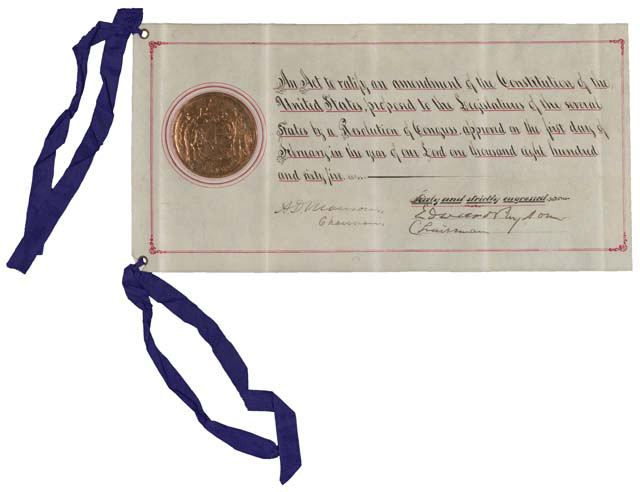Files
Download Full Text (47.4 MB)
Document Type
Text
Contributing Institution
Maine State Archives
Identifier
318374
Broad Creation Date
1841
Language
English
Location
Kennebec County; Augusta
Other Location
Washington, D.C.
Disciplines
History | Political History | Social History | United States History | Women's History
Recommended Citation
"1841 Scroll Petition Protesting Denial of Right of Petition and Freedom of Speech Regarding Abolition" (2017). 1764-1865. 25.
https://digitalmaine.com/early_aa_history_me/25

Rights Statement
No Copyright - United States. URI: http://rightsstatements.org/vocab/NoC-US/1.0/
The organization that has made the Item available believes that the Item is in the Public Domain under the laws of the United States, but a determination was not made as to its copyright status under the copyright laws of other countries. The Item may not be in the Public Domain under the laws of other countries. Please refer to the organization that has made the Item available for more information.



Description
A 51-foot scroll signed by Sarah Plummer and other women of Maine protesting Maine legislature denial of their right to submit petitions in favor of the abolition of slavery, and stating that such denial is unconstitutional and an abridgment of freedom of speech.
During the early 1830s, the American Anti-Slavery Society began to distribute petitions calling upon Congress to abolish slavery in the District of Columbia. Upon submission to the House of Representatives, the petitions were referred to the Committee on the District of Columbia. In the Spring of 1836, however, the House (with the support of northern Democrats) adopted the notorious "Gag Rule," which required that all petitions dealing with slavery "be laid on the table and that no further action whatever shall be laid thereon."
Former President John Quincy Adams, who had been elected to the House of Representatives in 1836, led opposition to the gag rule. He argued that the gag rule violated the constitutional right to petition--a right which extended even to slaves. Growing numbers of Northerners were convinced that the southern "slave power" threatened civil liberties. Thanks to Adams's efforts, the gag rule was finally suspended in 1844.
See also #21322 (Resolve Relating to Right of Petition)